The King Holiday
In honor of Dr. Martin Luther King, Jr., we will not publish on Monday. We'll see you again on Tuesday morning, January 17.
In honor of Dr. Martin Luther King, Jr., we will not publish on Monday. We'll see you again on Tuesday morning, January 17.
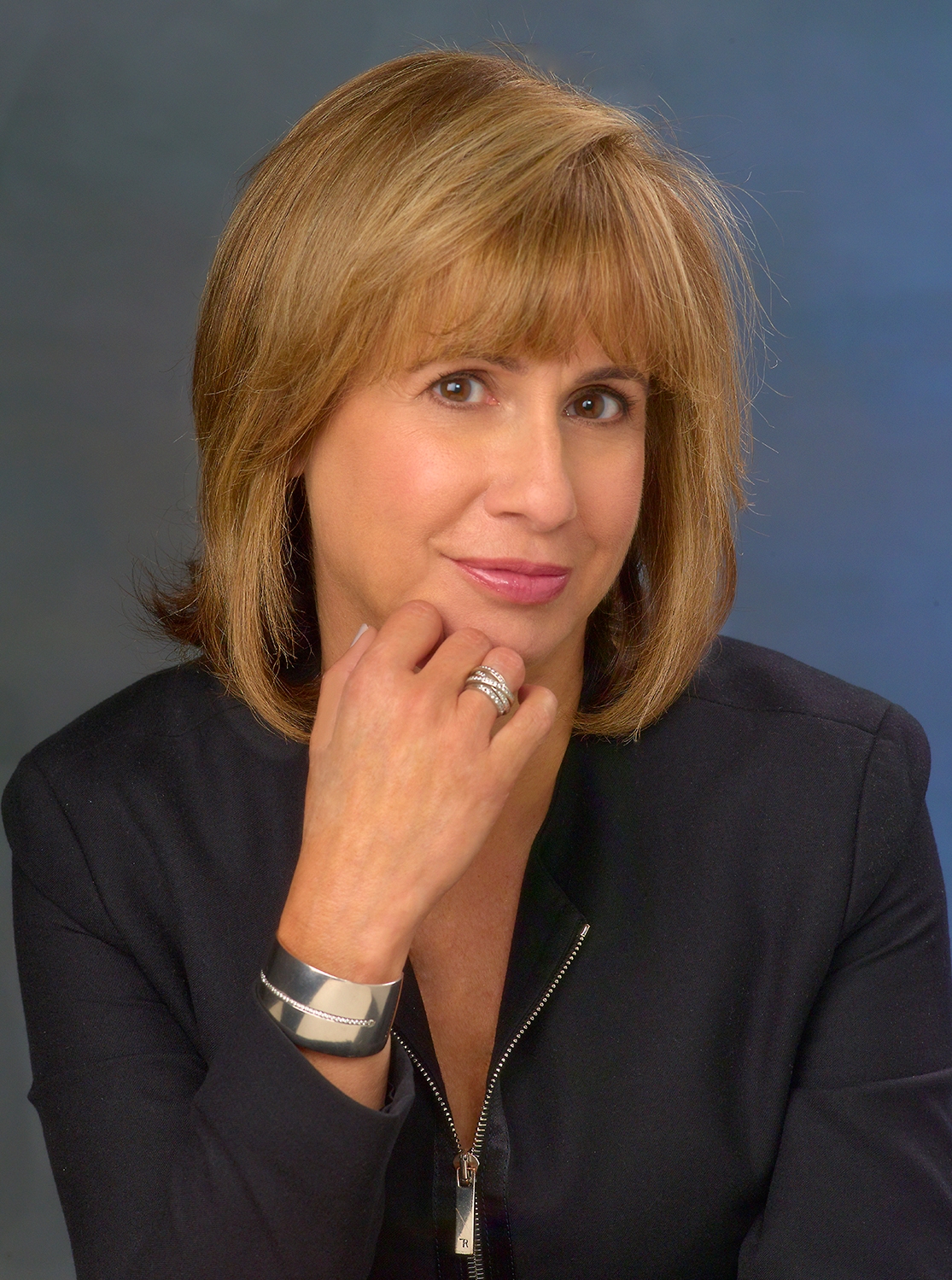 |
|
| Gina Centrello (photo: Sigrid Estrada) |
|
After a 40-year career, including the last 20 years as head of the Random House Publishing Group, Gina Centrello plans to retire as president and publisher of Random House and become a strategic adviser to the U.S. board of Penguin Random House.
"This was not a decision I came to lightly," she wrote in a letter to staff. "Over the past few years, I've spent a lot of time thinking about my future, and when the right moment might be for me to transition to a new way of leading. I've come to believe that that moment is now. This decision is, of course, bittersweet. I have truly loved leading Random House, and publishing books that matter and inspire change, books that entertain and thrill, and books that help us to be better people. I have relished watching your growth, as well, and I am excited that a new generation of brilliant publishing leaders and managers--the best in the business, as far as I'm concerned--will continue to thrive and soar in the years to come."
In a letter to staff, PRH U.S. CEO Madeline McIntosh said in part, "Gina's career has been defined by her insatiable curiosity, nurturing mindset, ability to attract and retain talent, keen negotiation skills, and a commitment to developing innovative programs and solutions to match a rapidly evolving marketplace...
"Gina and her publishers have achieved excellence across an extraordinary breadth of categories in fiction, narrative nonfiction and lifestyle. Year in and year out, Random House is home not only to innumerable bestsellers, but also to winners of the highest literary accolades and books that shape the cultural conversation...
"Of all her many accomplishments, the enduring hallmark of Gina's tenure will be the impact she has had on us as people. I know I'm only one of many indebted to her for her mentorship; I'm grateful for every minute of the support she has provided me, her peers, her employees, and our authors."
McIntosh noted that while the company plans for Centrello's succession, Bill Takes, executive v-p, business strategy, will be responsible for making sure "everything continues to run smoothly and successfully on a day-to-day basis."
Centrello began her career as a proofreader in the early 1980s. She then joined Pocket Books as a copy editor and in 1994 was named head of the imprint. In 1999, she became president and publisher of Ballantine Books.
 The American Booksellers Association's 18th annual Winter Institute, which will be held February 20-23 in Seattle, Wash., is featuring five keynote presentations throughout the event:
The American Booksellers Association's 18th annual Winter Institute, which will be held February 20-23 in Seattle, Wash., is featuring five keynote presentations throughout the event:
Tuesday Breakfast Keynote: "Chokepoints, Antitrust, Amazon, and You: How Corporate Monopolies are Squeezing Bookstores, and How You Can Fight Back." Author Cory Doctorow, in conversation with Danny Caine, co-owner of the Raven Book Store, Lawrence, Kan., and Stacy Mitchell, co-executive director of the Institute for Local Self-Reliance, about the risks posed by capitalist chokepoints and gaining strategies to fight back.
Tuesday Lunch Keynote: "New Voices in Genre." Authors Nana Kwame Adjei-Brenyah, Chloe Gong, Taj McCoy and Andrew Joseph White in a panel conversation keynote with Calvin Crosby, co-owner of the King's English Bookshop, Salt Lake City, Utah, about subverting different genre tropes to imagine worlds past, present, and future.
Wednesday Breakfast Keynote: "Closing the Gap Between Good Intentions and Real Change." Author Michelle MiJung Kim, in conversation with Hannah Oliver Depp, owner of Loyalty Bookstores, Washington, D.C., and Silver Spring, Md., about creating a more equitable world and going beyond performative allyship.
Thursday Afternoon Keynote: "Book Banning: Stores, Authors and Communities: What Can We Do?" Author Maia Kobabe; Kendrick Washington, director of the policy advocacy group at the ACLU of Washington; Heather Hall, owner of Green Feather Book Company; and Laura DeLaney, co-owner of Rediscovered Books and Once and Future Books, Boise and Caldwell, Idaho, in a keynote conversation moderated by Ray Daniels, chief communications officer of the ABA, about book bannings, the rights of readers, and the importance of representation in books.
Thursday Closing Keynote: "The Knowing: The Power of Independent Artists and Independent Retail Spaces." Singer-songwriter Ani DiFranco in conversation with Robert Sindelar, managing partner of Third Place Books, Seattle, Wash., and Carrie Colliton, co-founder of Record Store Day and director of marketing of the Department of Record Stores, moderated by Courtney Wallace, marketing manager and Independent Bookstore Day program director for the ABA, about the impact of independent artists and industries on culture and community.
A bookstore and wine bar called Vesper is slated to open in Detroit, Mich., early this year, Eater Detroit reported.
Co-owners Symantha Duggan and Rob Wilson are renovating a former bank building at 5001 Grand River Ave., in Detroit's Core City neighborhood. The 2,400-square-foot space will be divided between the bookstore and the wine bar/lounge, with the bank's original marble counters serving as part of the bar.
The book inventory will focus on things like translated literature and cookbooks, while the bar will serve natural wines, beer and non-alcoholic beverages along with a selection of snacks. The store will also carry a small amount of things like cookware and cutlery.
Wilson and Duggan described Vesper as a "third place focused on hospitality and ritual." There are plans to host things like poetry readings, book signings with food writers and events with local chefs.
Duggan first imagined a space like Vesper around 10 years ago, when she was still living in Austin, Tex. Wilson, meanwhile, is a veteran of the Detroit bar scene. In 2020 they decided to team up and turn Duggan's dream into a reality. They are aiming for Vesper to be open in the spring.
 The University Book Store will close its Tacoma, Wash., location today, the Tacoma Ledger reported.
The University Book Store will close its Tacoma, Wash., location today, the Tacoma Ledger reported.
Following the Tacoma bookstore's closure, UBS will move to a model where University of Washington Tacoma students buy their books and course materials online and pick them up at a physical location, which has yet to be determined. The Tacoma store opened in 1990 on Pacific Avenue and was one of UW Tacoma's first retail tenants.
The Tacoma bookstore had five staff members: one full-time employee and four part-time student employees. UBS chief operating officer Trevor Peterson said the full-time employee will move to the UBS flagship store in Seattle.
While a specific reason for the closure was not given, UW Chancellor Dr. Sheila Edwards Lange did point to difficulties associated with the changing retail market in a schoolwide e-mail. UBS also closed its Bothell, Wash., location in the past year.
The Ledger noted that many stores on Pacific Avenue have closed over the last few years because of "rent increases, lack of shoppers and a variety of other factors."
Barnes & Noble will open a new location in the Bridgehampton Commons shopping center in Bridgehampton, N.Y., before the summer, Behind the Hedges reported.
The store, which will span two storefronts in the shopping center, will be first in the Hamptons and the second on Long Island's East End. Behind the Hedges noted that former B&N owner and CEO Len Riggio has had a home in Bridgehampton for a long time, and the company opened a new store in Riverhead, Long Island, last year.
---
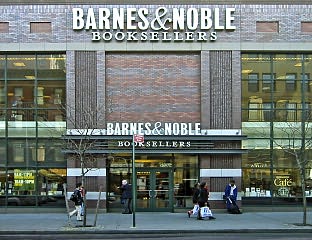 |
|
| B&N on Court Street | |
The Barnes & Noble bookstore on Court Street in Brooklyn, N.Y., is closing after two decades as its lease comes to an end and will relocate to 194 Atlantic Avenue. The new store officially opens next Wednesday, January 18, with author Hernan Diaz (Trust) cutting the ribbon.
"We have had a very happy 20 years at Court Street and are pleased to be able to continue our bookselling traditions in the Cobble Hill community," said B&N CEO James Daunt. "It is an exceptionally happy turn of events that we are inheriting the beautiful space that Barneys created and we are excited to show residents our brand-new bookstore."
Store manager Yinam Chung added: "We are so glad to be moving a short distance and to such a beautiful new store. We have had many years of fond memories in Court Street, with author events, book signings and, of course, storytimes, and are looking forward to bringing that same energy and event line up to Atlantic Avenue. We cannot wait to build new memories with this wonderful community."
"What makes a bookstore Jewish?" asked Hadassah magazine in a feature headlined "America's distinctive Jewish-Owned bookstores."
"Is it the pickles sold at Sweet Pickle Bookshop, on Manhattan's Lower East Side, or the bat mitzvah photos that decorate the store's walls?" Hadassah continued. "Is it the ease of stumbling upon a compelling read like The Last Kings of Shanghai, Jonathan Kaufman's history of rivaling Persian Jewish families in China, which is a hit in the Judaica section of The Bookshop & Get Lit Wine Bar in Lenox, Mass.?
"There are probably as many answers as there are Jewish-owned bookstores--themselves an unquantifiable subset of the approximately 2,500 independent bookstores in America. While many of these shops aren't explicitly Jewish, their proprietors often connect their Jewish values with the bookseller's mission of creating community around literature and ideas."
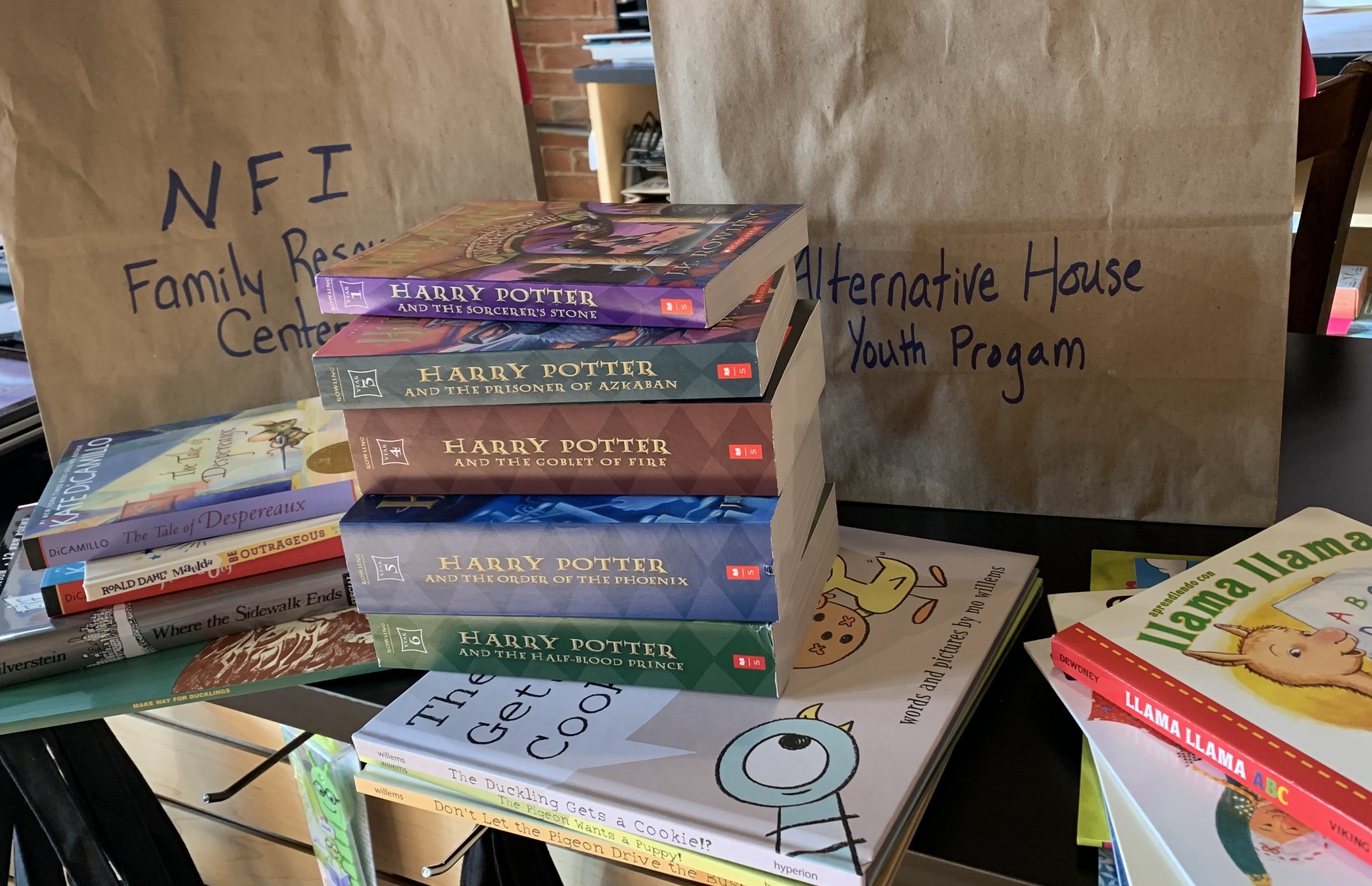 Posted on Facebook Tuesday by lala books, Lowell, Mass.: "Yesterday marked the one year anniversary of the passing of Ingrid Bayliss. To remember their mother, an avid reader, her daughters bought books off of our nonprofit Wish lists in her honor. Thank you Heather Bayliss-Reyes and Erica Zaim--the books will bring hours of reading joy to young people in our community."
Posted on Facebook Tuesday by lala books, Lowell, Mass.: "Yesterday marked the one year anniversary of the passing of Ingrid Bayliss. To remember their mother, an avid reader, her daughters bought books off of our nonprofit Wish lists in her honor. Thank you Heather Bayliss-Reyes and Erica Zaim--the books will bring hours of reading joy to young people in our community."
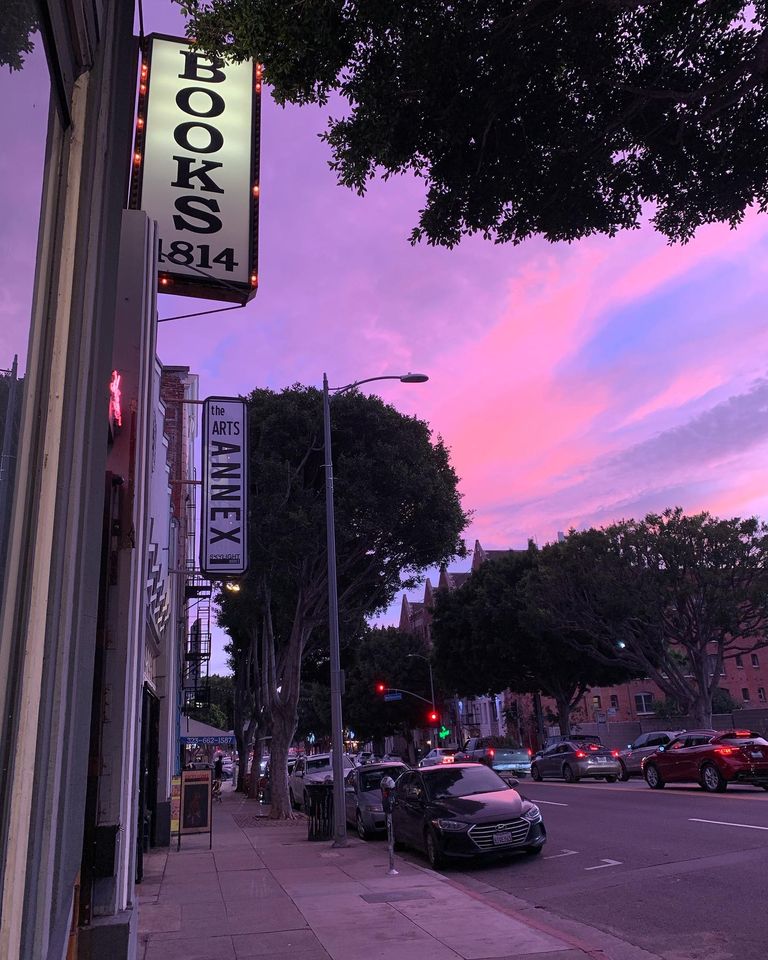 "There's something about that post rain sunset," Skylight Books, Los Angeles, Calif., posted on Facebook. "We've been staying dry inside with all the books, as we hope you all did too!"
"There's something about that post rain sunset," Skylight Books, Los Angeles, Calif., posted on Facebook. "We've been staying dry inside with all the books, as we hope you all did too!"
At Rizzoli:
Marco Ausenda has become chairman of the boards of Rizzoli International Publications and Rizzoli Bookstores. He had been president and CEO of both companies since 2002.
Stefano Peccatori has been named president and CEO of Rizzoli International Publications and Rizzoli Bookstores and is a senior officer at Mondadori Libri, Rizzoli's parent company. Peccatori has been with the Mondadori Group for 30 years, starting as sales and marketing director of Sperling & Kupfer, then becoming general manager and publisher of Mondadori Electra, and in 2018, named general manager and publisher of Sperling & Kupfer and Piemme. He will retain these roles.
---
At Penguin Random House:
Lauren Monaco is expanding her responsibilities in her new role as senior v-p, sales director, Penguin and Knopf Doubleday Publishing Groups. She had been senior v-p, sales director, for the Penguin Publishing Group.
Andy Dudley, v-p, imprint sales director, who reports to Monaco, will continue to be responsible for Penguin Press, Portfolio, Riverhead, Sentinel and Viking/Penguin and will now add Knopf, Doubleday, Pantheon, Schocken, Everyman's Library, Vintage and Anchor.
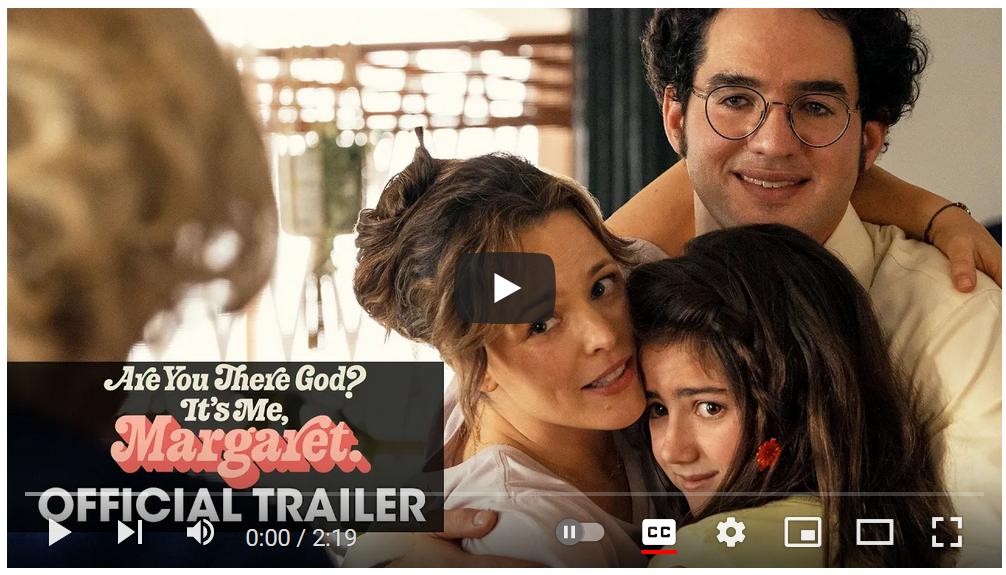
The cast includes Abby Ryder Fortson as Margaret, Rachel McAdams, Kathy Bates and Benny Safdie. Producers are Gracie Films' Brooks along with Julie Ansell, Richard Sakai, Craig, Blume, Amy Lorraine Brooks and Aldric La'auli Porter. Jonathan McCoy is executive producer.
Stolen Focus: Why You Can't Pay Attention by Johann Hari was named the 2022 Porchlight Business Book of the Year (formerly the 800-CEO-READ award), which was presented virtually from the company's headquarters in Milwaukee, Wis.
“In one insightful instance after another, Hari demonstrates the ways in which our attention is deliberately hijacked, and the ways in which companies and their software could easily do just the opposite.” said Porchlight’s owner and CEO, Rebecca Schwartz. “In a conversational style, he thoughtfully and convincingly shows us the incentives around which the internet and the sites that depend on it are designed--and how they could be organized around very different principles, those that not only enhance our focus but feed our emotional health and cooperative spirits as well. Even as he discloses his own vulnerability to wasting hours online or fishing for ‘likes,' he makes a hopeful, fearless case for how we must combat the loss of human attention. In doing so, he makes clear, we can renew our imaginations and inspire our collective energies to fight for the common good.”
Barbara Cave Henricks is the recipient of the 2022 Jack Covert Award for Contribution to the Business Book Industry. Porchlight managing director Sally Haldorson observed: "We need publicists. Really talented publicists who know how to build a wind behind the back of a good book and push it into the public eye where it belongs. And one of the very best publicists in our industry... is Barbara Cave Henricks....
"In 2007, Barbara opened her own firm, Cave Henricks Communications, which represents about 25 nonfiction titles and authors a year. She now guides a team who are every bit as caring and deliberate and motivated to drive a book’s success as she has always been. Just months before Jack passed away in 2021, he wrote an e-mail to me noting that 'BTW Barbara should be the next.' So we are proud, in Jack’s stead, to give the Jack Covert Award for Contribution to the Business Book Industry to Barbara Cave Henricks!"
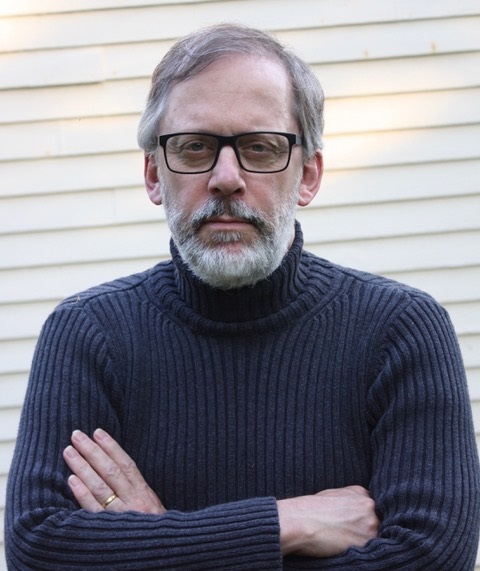 |
|
| photo: Celeste Amidon | |
Stephen Amidon was born in Chicago and grew up on the East Coast. He lived in London for 12 years before returning to the United States in 1999. He now lives in Massachusetts and Torino, Italy. His books have been published in 16 countries and include two works of nonfiction, a collection of stories and seven novels, including Human Capital, adapted as a film directed by Marc Meyers in 2019, and Security, also adapted as a film and released by Netflix in summer 2021. His ninth novel is Locust Lane (Celadon, January 17, 2023), about the search for justice and the fault lines of power and influence in a seemingly idyllic town.
Handsell readers your book in 25 words or less:
A murder in suburbia sets three families on a collision course as they scramble to protect their treasured children from the consequences of the crime.
On your nightstand now:
Down and Out in Paradise: The Life of Anthony Bourdain by Charles Leerhsen. I was always deeply impressed by the broadcasting and writing of Bourdain, who possessed such a humane, wise and unpretentious presence. I'm curious to see how such a seemingly ideal life could have gone so terribly wrong at the end.
Razorblade Tears by S.A. Cosby. I read Blacktop Wasteland last year and was immediately sold on Cosby's brand of hard-bitten Southern noir. More, please.
The Night Shift by Alex Finlay. I'm about halfway through this and think it's terrific. It's only Finlay's second novel, but he writes with immense authority and skill.
Olga Dies Dreaming by Xochitl Gonzalez. I've heard nothing but good things about Olga and plan to see what all the fuss is about.
Favorite book when you were a child:
Johnny Tremain: A Story of Boston in Revolt by Esther Forbes. I must have read Forbes's magnificent 1943 YA novel a half-dozen times as a boy. It was the first time a novel transported me to another era. For 300 pages, I was Johnny. It really fired up my imagination and taught me that a novel should create an empathetic bond between reader and characters.
Your top five authors:
Don DeLillo: He's a novelist with a stethoscope on the chest of our fibrillating world. From Lee Harvey Oswald to the "most photographed barn in America," DeLillo depicts the modern American landscape with shocking precision and a wickedly deadpan style. No one else can make dread so terminally funny.
Jane Austen: I recently had the pleasure of teaching Emma and was struck this time around by Austen's cunning sense of humor, her sly feminism and her astonishing scope in rendering characters. She is the great (and I mean great) grandmother of all novelists.
Ernest Hemingway: Literary fashion comes and goes, but Hemingway's sentences remain as durable as ancient monuments. And the more I read him, the more I appreciate his ear for dialogue.
Pete Dexter: In novels like Paris Trout and Brotherly Love, Dexter wrote about toxic masculinity long before it became a term of art. His stories of inarticulate, violent men fearlessly explore the no-man's-land between savagery and civilization. His prose hits you like cement trucks with blown brakes.
Graham Greene: Greene pulled off one of the most difficult magic acts in literary history: combining the popular storytelling techniques of the thriller and the espionage novel with deeply profound philosophical and religious meditations.
Book you've faked reading:
Moby-Dick. I've tried. Truly. I even gave the audio book a shot. But that great, lumbering beast drowns me every time (and I'm not talking about the whale).
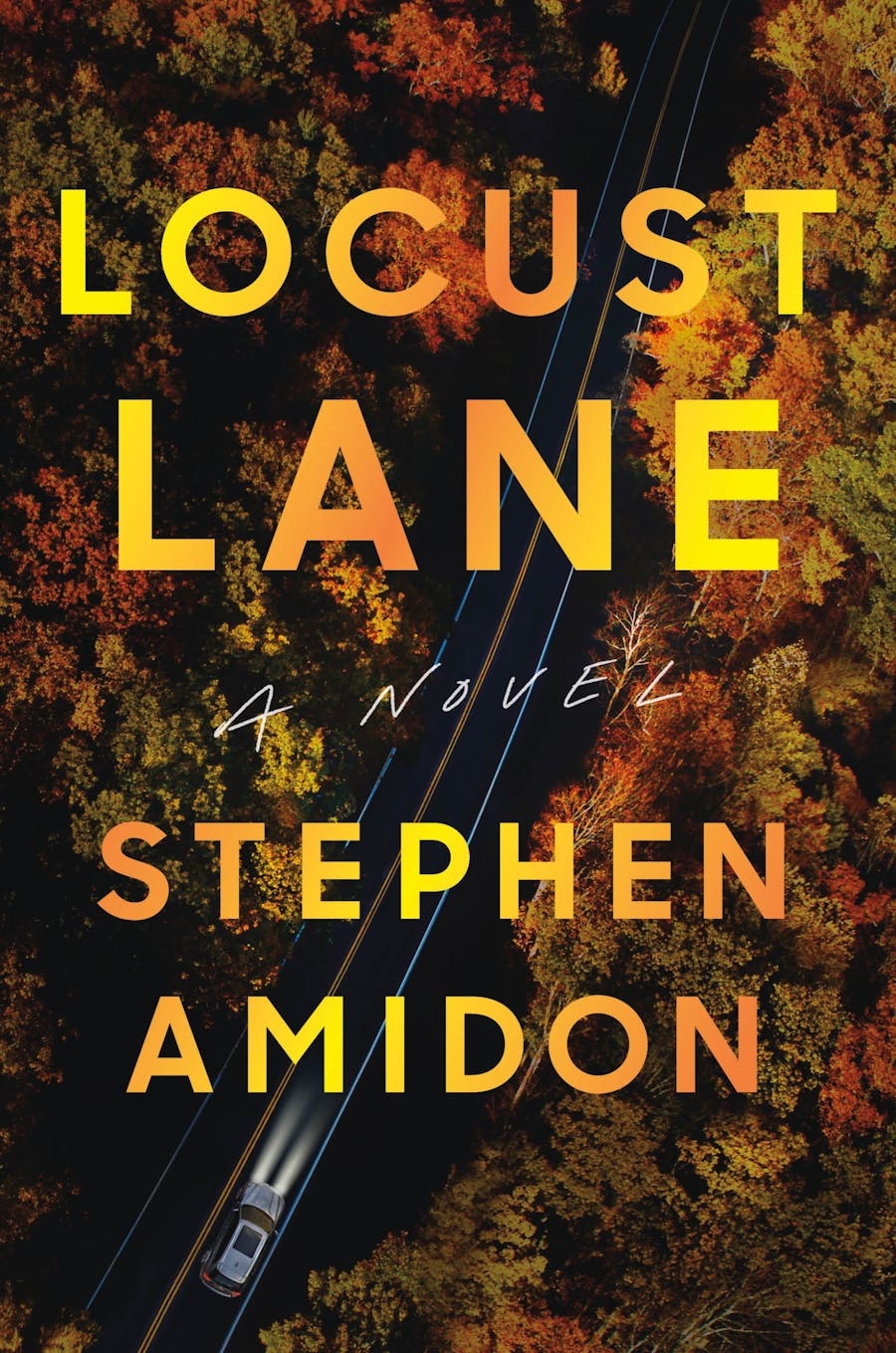 Book you're an evangelist for:
Book you're an evangelist for:
White Noise by Don DeLillo. I've taught it to students. I've bought it for friends. I've forced it on my family. DeLillo's deliriously dark 1985 novel about an "airborne toxic event" that threatens a loveable midwestern family is an essential guide to the human condition.
Book you've bought for the cover:
Snow Falling on Cedars by David Guterson. The bleak, beautiful, fog-enshrouded cover photo of a Pacific Northwestern landscape promises mystery, tragedy and romance. And the book certainly delivers.
Book you hid from your parents:
Soul on Ice by Eldridge Cleaver. Not a good fit with mom and pop's Nixonian Republican world view but a real eye-opener for a 14-year-old boy at an almost entirely white suburban high school.
Book that changed your life:
The Grapes of Wrath. Another book I read during my 14th year. Even to my callow mind, Steinbeck's ability to switch from the macroscopic view of an America in deep crisis to the precisely rendered fate of the Joad clan was an immense literary achievement.
Favorite line from a book:
"The world breaks every one and afterward many are strong at the broken places. But those that will not break it kills. It kills the very good and the very gentle and the very brave impartially. If you are none of these you can be sure it will kill you too but there will be no special hurry." --Hemingway, A Farewell to Arms
Five books you'll never part with:
The Arden Shakespeare Complete Works. Table of Contents: all human experience.
The Moviegoer by Walker Percy. As a former philosophy major and film critic, I have formed a special bond with Percy's 1961 novel of a New Orleans stockbroker who is obsessed with Hollywood movies and profoundly influenced by the teaching of Kierkegaard.
Revolutionary Road by Richard Yates. I am a child of the suburbs who now writes about them, and Yates's 1962 tragedy of a young couple floundering in conformity and well-being inspires everything I create.
The Bonfire of the Vanities by Tom Wolfe. For its pure energy, vast scope and deadly satire, Wolfe's study of Reagan-era greed remains the gold standard for me in how to write a big novel that never lets its foot off the gas.
Subdivision by Stephen Amidon. My first book, long out of print. I only have a few copies left--and I'm never parting with them.
Book you most want to read again for the first time:
The Silence of the Lambs by Thomas Harris. I had to read the final pages of Harris's 1988 masterpiece with an index card covering upcoming paragraphs to keep me from jumping ahead. A brilliantly written thriller that, for me, was literally thrilling.
Saving Time: Discovering a Life Beyond the Clock by Jenny Odell (Random House, $28.99 hardcover, 400p., 9780593242704, March 7, 2023)
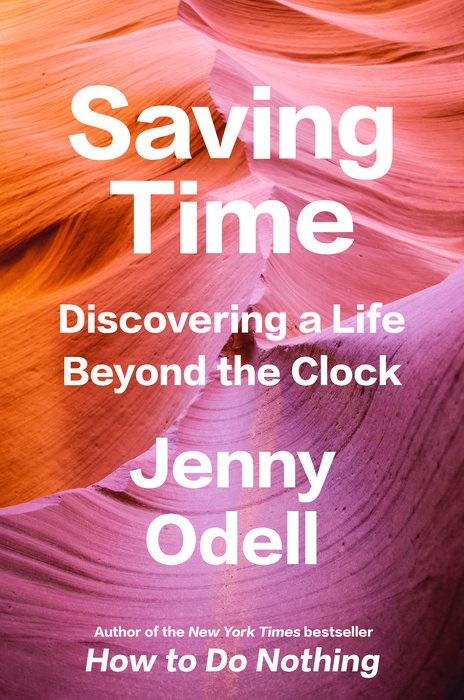 If readers looking for productivity hacks pick up Jenny Odell's Saving Time: Discovering a Life Beyond the Clock, they will have chosen the wrong book. Instead, in the spirit of her How to Do Nothing: Resisting the Attention Economy, Odell delivers a penetrating, provocative investigation into the subject of time--how to understand and live with it--on both an individual and societal level. Odell, a multidisciplinary artist who formerly taught digital art at Stanford University, offers readers a set of "conceptual tools for thinking about what 'your time' has to do with the time you live in." In a work that's reminiscent of the writing of Rebecca Solnit, Odell embarks on a wide-ranging survey that encompasses economics, politics, sociology and science, among other disciplines. Odell, above all, decries the "cruel dynamic related to the bootstrapper ethos of individual time management" with its exhortations that "time is money"--or what she calls the "myth of equal hours" that creates a sense of time impoverishment and guilt for individuals trapped in a system where time truly is not theirs to control.
If readers looking for productivity hacks pick up Jenny Odell's Saving Time: Discovering a Life Beyond the Clock, they will have chosen the wrong book. Instead, in the spirit of her How to Do Nothing: Resisting the Attention Economy, Odell delivers a penetrating, provocative investigation into the subject of time--how to understand and live with it--on both an individual and societal level. Odell, a multidisciplinary artist who formerly taught digital art at Stanford University, offers readers a set of "conceptual tools for thinking about what 'your time' has to do with the time you live in." In a work that's reminiscent of the writing of Rebecca Solnit, Odell embarks on a wide-ranging survey that encompasses economics, politics, sociology and science, among other disciplines. Odell, above all, decries the "cruel dynamic related to the bootstrapper ethos of individual time management" with its exhortations that "time is money"--or what she calls the "myth of equal hours" that creates a sense of time impoverishment and guilt for individuals trapped in a system where time truly is not theirs to control.
The breadth of Odell's concerns is impressive. Writing in a style that's both erudite and often deeply personal, she explores obvious subjects that include the roots of modern time management, which are associated with the work of mechanical engineer Frederick Winslow Taylor in the early 20th century, and more subtle ones. Among the latter are the interplay between time and climate change (forest management and California wildfires are particular interests); the intersection of time and leisure, especially as manifested on social media sites like Instagram; and how women's time is devalued both in and out of the workplace.
Interspersed with these deeper reflections are brief but beautiful interludes, enhanced by evocative black-and-white photographs, that recount Odell's encounters in the natural world (she's an avid birdwatcher) in and around her hometown of Oakland, Calif. Odell concludes that "there has to be a different way of thinking about time than the one in which we're simply strapped in all the way to the end." For her, that means "grasping and playing a different game altogether, one where 'winning' means something that previously may have been impossible to articulate." The rules of that game have yet to be established, but anyone who wants to think deeply about what some of them might be can fruitfully engage in that exercise here. --Harvey Freedenberg, freelance reviewer
Shelf Talker: In a multifaceted survey, Jenny Odell considers time, a complex subject that is a universal aspect of the human condition.
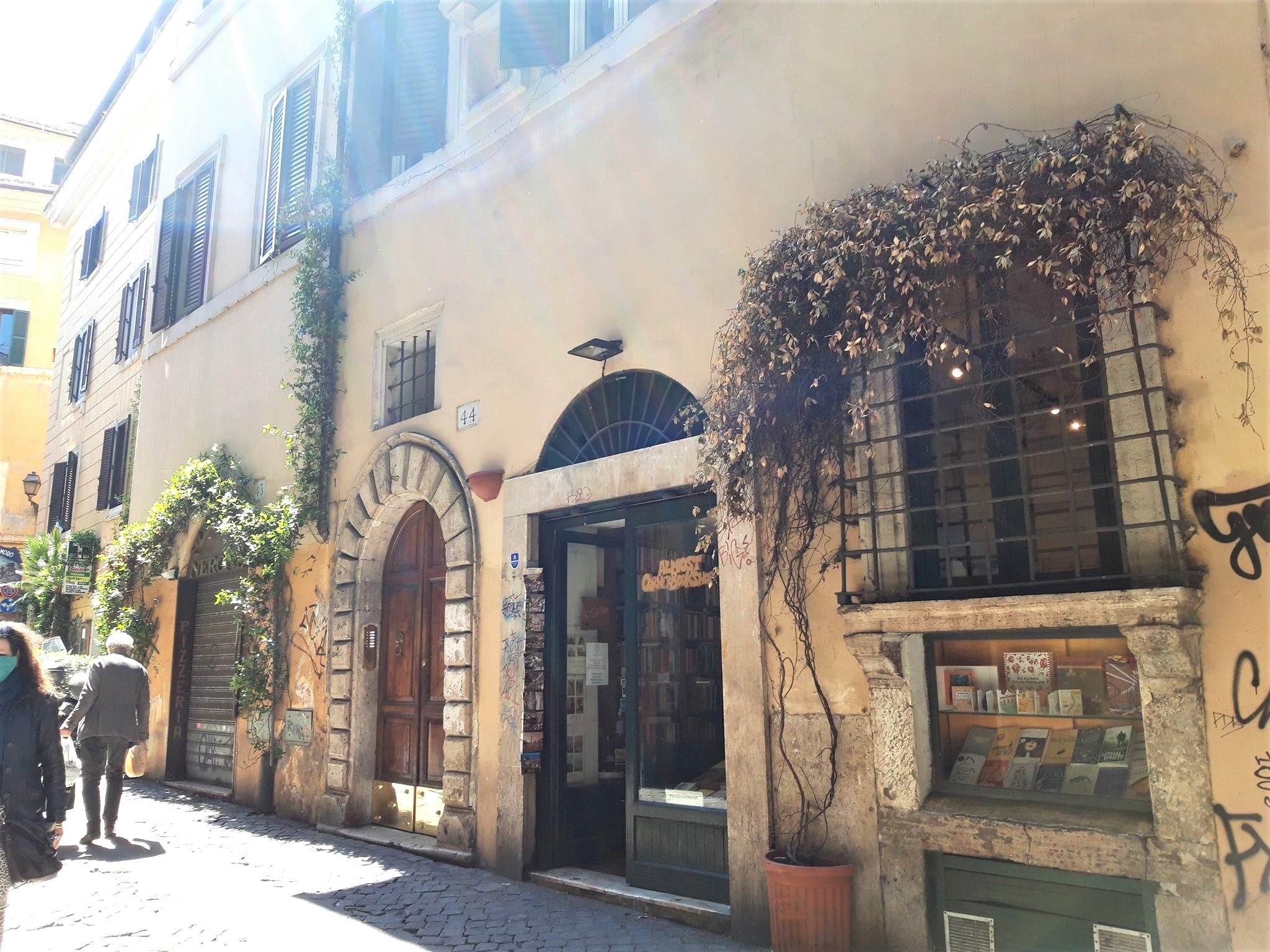 |
|
| Almost Corner Bookshop | |
Column ideas come to me from many directions and, as it turns out, destinations. On January 7, Italian bookseller Almost Corner Bookshop in Rome posted a link on Facebook to a Guardian article headlined " 'It altered my entire worldview': leading authors pick eight nonfiction books to change your mind."
Later that day, Dudley's Bookshop Café, Bend Ore., posted the same link, noting: " 'A noble spirit embiggens the smallest man.' If you'd like to embiggen your worldview, here's a list of 8 non-fiction titles that have opened the minds of their author readers. Props to those of you who also get the above reference...."
 Always ready to have my worldview embiggened, I read the Guardian piece. Steven Pinker said his choice, Getting Better: Why Global Development Is Succeeding--and How We Can Improve the World Even More by Charles Kenny, "lifted my view of history and the current state of the world to a higher level."
Always ready to have my worldview embiggened, I read the Guardian piece. Steven Pinker said his choice, Getting Better: Why Global Development Is Succeeding--and How We Can Improve the World Even More by Charles Kenny, "lifted my view of history and the current state of the world to a higher level."
Mary Beard cited Purity and Danger: An Analysis of Concepts of Pollution and Taboo by Mary Douglas as the work that "opened my eyes, and helped me see different things not just in Roman history but in the world around me too.... I am not sure that the answers I came up with were any more correct than those of Douglas herself. But her book showed me how to ask different questions--and it showed that a book doesn't have to be right to be important."
Margo Jefferson chose Ralph Ellison's essay collection Shadow and Act, noting, "Reading him, I realized that even great novelists (and poets) needed to write criticism, that criticism lets them delineate and transmit passion, character and history in ways that fiction did not. For me this change of hierarchies was a change of mind and a change of heart."
Jim Al-Khalili chose Consciousness Explained by Daniel Dennett, "a book that explained away one of the deepest mysteries of existence using logic and common sense. Whether right or wrong, it altered my entire worldview on the comprehensibility of reality."
Samanth Subramanian observed that soon after reading Surely You're Joking, Mr Feynman!, "my interest in a career in the sciences died. This was not Richard Feynman's fault. I was, at the time, immersed in a typical Indian high-school curriculum of physics, chemistry and mathematics: dense lessons that urged rote memorization or brute practice. Feynman made sure I remained interested in science long after I left any academic dreams behind."
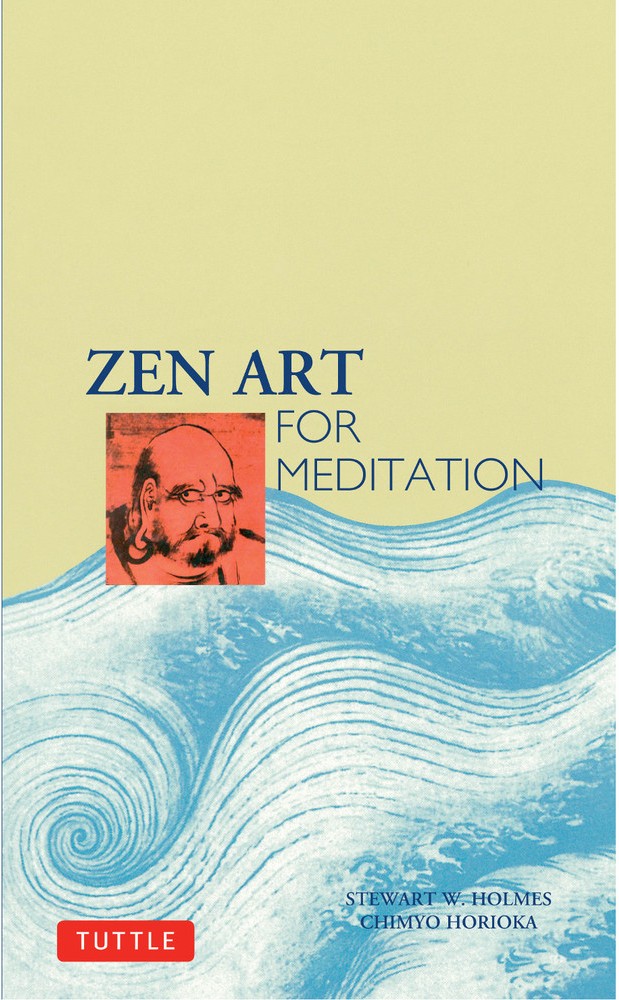 How can anyone resist accepting the Guardian's challenge? What book made you see the world differently? For a time after reading the piece, I couldn't begin to narrow down the field. One book! And then, quite suddenly, I could...
How can anyone resist accepting the Guardian's challenge? What book made you see the world differently? For a time after reading the piece, I couldn't begin to narrow down the field. One book! And then, quite suddenly, I could...
In the mid-1970s, I was browsing the stacks at Tuttle Antiquarian Books in Rutland, Vt., which served then as a kind of retail bedrock for my reading life. In addition to an extensive used book inventory (the bookshop closed in 2006), the two buildings also housed the offices of Tuttle Publishing (which still exists as part of Periplus Publishing Group).
It's not an exaggeration to say that a significant part of my introduction as a reader to the world of translated books came from the new-title display shelves in Tuttle's old headquarters, where I purchased my first copies of titles like Zen Flesh Zen Bones by Paul Reps & Nyogen Senzaki; The Izu Dancer & Other Stories by Yasunari Kawabata; Spring Snow by Yukio Mishima; Seven Japanese Tales by Junichiro Tanizaki and so many others.
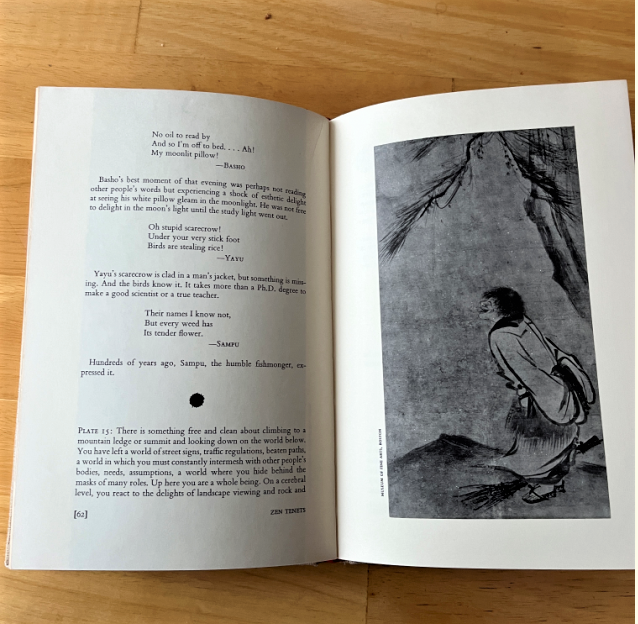
During the spring semester in 1970, one of the college courses I took was called "English Language." The professor was a diminutive, soft-spoken man whose passion for sharing the intricacies, history and infrastructure--especially semantics--of English was obvious, but sadly fell upon reluctant ears. It all seemed a little dry to me, especially compared with the English Lit courses I was taking at the time. So I dutifully showed up, took my B grade, and moved on. No lessons learned... yet.
Just a few years later, however, I found Zen Art for Meditation, and soon had a moment of sheepish, non-Zen awakening when I realized that the nice little man, the one I had all but dismissed, was Stewart Holmes, co-author of this wonderful, life-altering book. In effect, he became my teacher again, the one I'd been looking for but hadn't noticed when he was standing right in front of me. The first lesson was a well-earned dose of humility.
Their names I know not,
But every weed has
Its tender flower.
In Zen Art for Meditation, this haiku is introduced with the words: "Yayu's scarecrow is clad in a man's jacket, but something is missing. And the birds know it. It takes more than a Ph.d degree to make a good scientist or a true teacher.... Hundreds of years ago, Sampu, the humble fishmonger, expressed it."